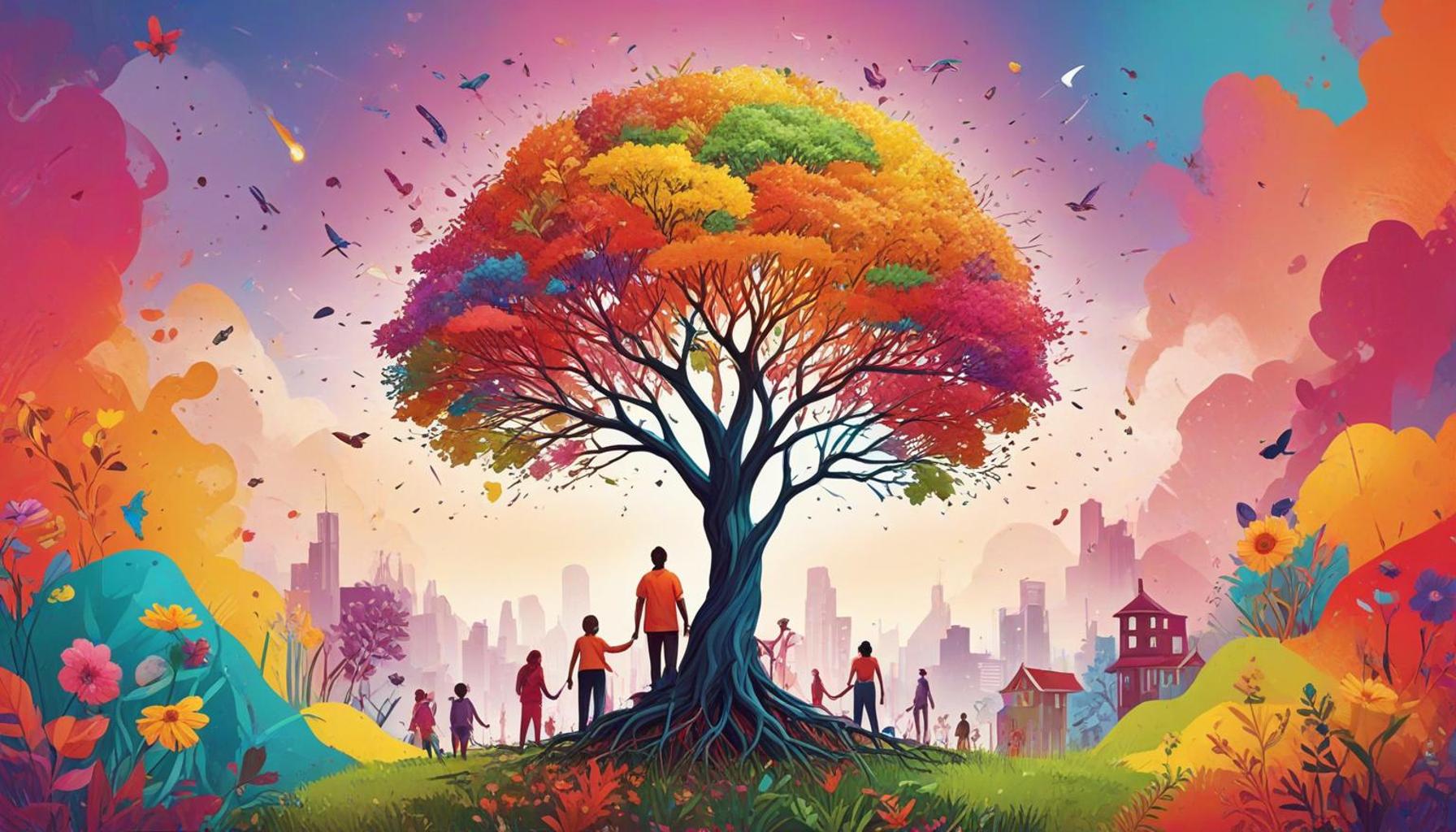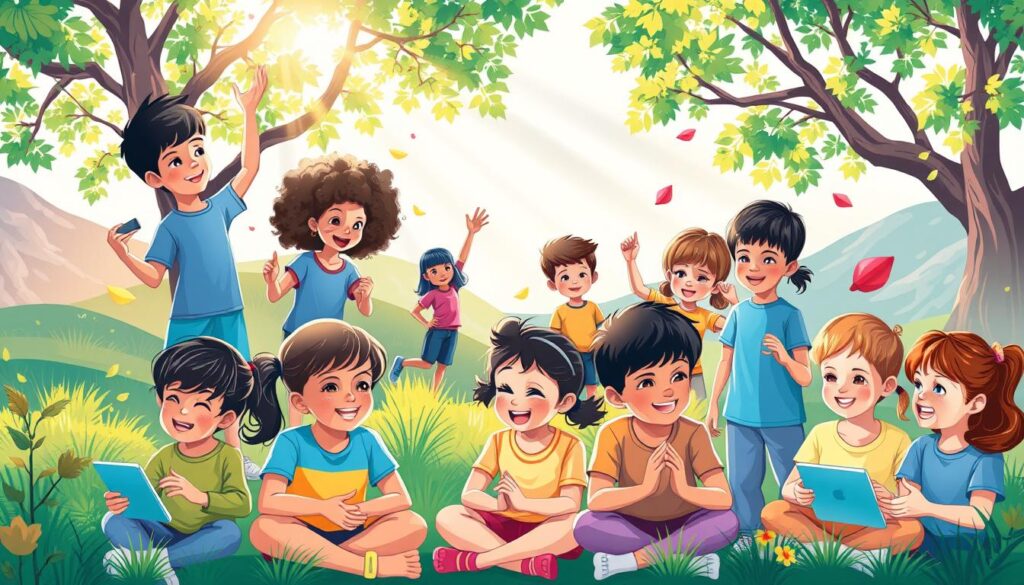Resilience in Communities: How a Growth Mindset Can Strengthen Social Bonds

Building Resilience through a Growth Mindset
In an era defined by rapid change and unforeseen challenges, the resilience of communities is paramount. A growth mindset represents a transformative approach, fostering an environment where individuals do not just survive but thrive together. This proactive mindset instills the belief that abilities and intelligence can be developed through dedication and hard work, laying the groundwork for a stronger societal foundation.
This growth-oriented perspective encourages communities to:
- Embrace Challenges: Communities that adopt a growth mindset view obstacles as opportunities for growth rather than insurmountable barriers. For instance, during the COVID-19 pandemic, many Nigerian communities innovatively pivoted their local industries to produce personal protective equipment, thereby creating jobs and meeting urgent healthcare needs.
- Celebrate Efforts: Recognition of collective hard work is pivotal for building morale and community spirit. Community events that acknowledge achievements, such as awards for outstanding service in social projects, solidify bonds and inspire others to contribute. Noteworthy examples include the annual events like the National Youth Service Corps (NYSC) Annual Awards, which acknowledge volunteers for their contributions to community development.
- Learn from Criticism: Using feedback as a tool for improvement is essential for progress. Constructive criticism encourages communities to assess their efforts honestly and adapt productively. In many Nigerian local governments, forums where community members can voice their concerns and suggestions are integral to improving local governance and service delivery.
In Nigeria, where diverse cultures and traditions coexist, the significance of social bonds is evident in various strata of society. The country showcases plentiful examples of resilience, particularly in:
- Local Initiatives: Innovative community-led projects that uplift members are abundant, such as the cooperative farming models seen in states like Benue and Enugu, where farmers pool resources to cultivate crops, share skills, and enhance food security.
- Support Networks: Informal groups, such as the Osusu system, provide critical emotional and financial support during tough times. These saving schemes allow members to contribute regularly, providing a financial cushion during emergencies, thus reinforcing the idea of collective resilience.
- Cultural Festivals: Events like the Calabar Carnival and the Durbar Festival serve not only as a means for artistic expression but also reinforce unity among community members, drawing them together to celebrate their heritage while encouraging collaboration and friendship.
By adopting a growth mindset, communities can cultivate strong social ties that not only empower individuals but also fortify the very fabric of society. This transformation creates a ripple effect, enabling a more collaborative and resilient future. Exploring these concepts not only showcases the potential for change within Nigerian communities but also offers insights relevant to societies around the world. Indeed, the lessons learned from such endeavours could inspire other nations facing similar challenges, promoting a truly global sense of resilience.
LEARN MORE: This related article may interest you

Fostering Collaborative Solutions
The essence of resilience is deeply intertwined with the ability of communities to work collaboratively towards common goals. A growth mindset serves as a catalyst in promoting collective problem-solving, directing attention towards innovative solutions. In Nigeria, where socioeconomic disparities often create challenges, harnessing the power of communal efforts can lead to remarkable transformations.
For example, the rise of community-driven initiatives led by groups like the Agro-Allied Entrepreneurs Association has significantly impacted local economies. By prioritizing cooperative strategies, members share knowledge and resources, which enhances productivity and fosters a sense of belonging. These initiatives not only raise standards of living but also illustrate how embracing a collaborative spirit can yield tangible benefits.
The Role of Education and Skill Development
Education is a powerful tool in cultivating a growth mindset, as it equips individuals with the necessary skills to adapt and innovate. Community learning programs, such as those organized by the Adult Literacy and Empowerment Program, demonstrate how accessible education can stimulate economic growth and strengthen resilience.
Such initiatives provide essential vocational training, enabling community members to gain skills that enhance their employability. Moreover, by fostering a culture of continuous learning, these programs encourage individuals to approach challenges with a positive outlook. The multifaceted nature of education promotes not just personal growth but also strengthens the bonds within the community, as individuals support and uplift one another in the learning process.
- Peer Mentorship: Initiatives that pair experienced professionals with young learners can build a robust environment of trust and collaboration. These mentorships not only facilitate skill development but also create connections that are fundamental to community resilience.
- Entrepreneurial Workshops: Programs designed to offer training in business principles allow community members to explore diverse avenues for income generation, further enhancing their collective capacity to withstand economic pressures.
- Intergenerational Learning: Encouraging knowledge transfer between older and younger generations helps preserve cultural wisdom while fostering innovation, thereby contributing to a cohesive community identity.
These educational programs highlight a critical link between a growth mindset and the strengthening of social ties. As communities lean on each other for support, they cultivate a robust network of relationships that not only serve immediate needs but also enhance long-term resilience.
As we delve deeper into the concept of resilience and growth, it becomes clear that the interconnectedness of various community initiatives and support systems plays a pivotal role in bolstering rather than fragmenting social bonds. By cultivating an environment where learning, collaboration, and innovation thrive, communities can significantly enhance their ability to adapt and flourish amid adversity. This not only reinforces individual capabilities but also enhances the collective strength, forming a more unified and resilient society.
| Advantage | Description |
|---|---|
| Enhanced Collaboration | A growth mindset fosters open-mindedness, driving individuals to collaborate effectively in challenging situations. |
| Stronger Relationships | Communities that nurture resilience through a growth mindset build trust and empathy, leading to deeper social bonds. |
| Increased Adaptability | Being open to change and learning strengthens a community’s ability to adapt during crises. |
| Community Support | A growth mindset encourages members to support each other, enhancing overall well-being and satisfaction. |
Communities embracing a growth mindset are not only more resilient but also more connected. Initiatives geared toward cultivating this mindset can lead to collective learning experiences, where every member feels valued and empowered. By actively promoting resilience, societies can navigate life’s challenges together, ensuring that social bonds are not merely maintained but strengthened, ultimately creating a network of support that enriches every individual’s life. As communities face both everyday adversities and larger crises, fostering a growth mindset becomes essential in shaping the fabric of their social interactions, shaping future generations toward a more cohesive society. The potential for transformation through resilience is immense, urging further exploration into practical applications and success stories of growth mindset initiatives in communities worldwide.
LEARN MORE: This related article may interest you
Building Trust Through Community Engagement
In the fabric of a resilient community, the threads of trust and engagement are woven tightly together. A growth mindset nurtures this trust by encouraging open communication and inclusive participation among members. In Nigeria, community forums and town hall meetings exemplify such engagements, allowing for open dialogue regarding local challenges and solutions. These gatherings not only provide a platform for voicing concerns but also serve as vital opportunities to build relationships.
The success of initiatives like the Community Driven Development Project illustrates the impact of collective involvement. Here, community members actively participate in decision-making processes, thereby reinforcing their sense of ownership. When people see their perspectives valued and incorporated into projects, they often feel more connected to one another and invested in the outcomes. This shared sense of purpose is a hallmark of resilient communities, resulting in a stronger, more cohesive social fabric.
The Importance of Cultural Practices
Cultural traditions play a crucial role in fostering resilience within Nigerian communities. By embracing collective rituals and customs, communities can instill a deep sense of belonging and kinship. Celebrations, such as festivals or communal feasts, are more than mere events; they reinforce social bonds and promote a sense of unity. For instance, the Olojo Festival in Ife celebrates the Yoruba heritage and brings the community together, reinforcing shared identities and experiences.
Furthermore, storytelling is a powerful medium through which knowledge is shared and cultural values are passed down. Local storytelling sessions can enhance both personal and communal resilience as the wisdom of past generations inspires and shapes current actions. This continuity strengthens intergenerational ties and encourages community members to engage in problem-solving from a cultural perspective.
- Collaborative Arts and Crafts: Engaging in cultural art forms, such as traditional weaving or pottery, fosters creativity while serving as a means of preserving cultural heritage. These group activities can enhance teamwork and strengthen bonds among participants.
- Shared Agricultural Practices: Community farming initiatives allow members to work together while contributing to food security, thereby reinforcing interdependence and trust. Initiatives like the Farmers Cooperative Society showcase this spirit, illustrating how community collaboration enhances resilience against economic fluctuations.
- Religious Gatherings: Spiritual practices often draw communities together, providing comfort and support during times of crisis. For many Nigerians, communal prayers or gatherings serve as both a spiritual anchor and a means of social connectivity.
By cultivating and preserving cultural practices, communities can strengthen their identity and foster a resilient environment that embraces challenges with optimism. A growth mindset empowers individuals to view setbacks as learning experiences, promoting adaptability. In turn, this adaptability enriches social bonds, allowing communities to emerge stronger from adversity.
The dynamic interplay between culture, trust, and community engagement illustrates that resilience is not merely an individual trait but a collective strength. By prioritizing collaboration and celebrating shared heritage, communities across Nigeria can create an atmosphere where social bonds flourish and a resilient spirit prevails.
LEARN MORE: This related article may interest you
Conclusion
In summary, resilience in communities is intricately linked to a growth mindset, as both foster a culture of collaboration and understanding. By encouraging members to embrace challenges as opportunities for learning, communities can cultivate deeper social bonds that not only withstand adversity but thrive in the face of it. As evidenced by initiatives across Nigeria, such as the Community Driven Development Project and cultural celebrations like the Olojo Festival, active participation and cultural continuity play pivotal roles in fostering resilience.
The tapestry of community strength is woven through trust, shared experiences, and a commitment to collective growth. By engaging in cultural practices, storytelling, and collaborative projects, community members not only preserve their heritage but also enhance their capacity to navigate challenges together. This symbiotic relationship between cultural identity and resilience signifies that when individuals feel connected and valued, the entire community emerges stronger.
As we look to the future, it’s essential to continue prioritizing engagement, creativity, and open communication. The journey toward resilience is ongoing; however, by nurturing a growth mindset within our communities, we can build social ties that are robust enough to weather any storm. This collective spirit not only enriches lives but also fortifies our ability to envision a brighter, more unified future for all Nigerians. Ultimately, when communities come together, embracing both their individual and common strengths, they can face challenges with optimism and determination.
Related posts:
Resilience in Mental Health: Growth Mindset Techniques to Overcome Anxiety and Depression
Unlock Personal Growth Resilience to Overcome Challenges
The Importance of a Growth Mindset in Overcoming Challenges in Nigerian Communities
Cultural Resilience: How a Growth Mindset Can Preserve Traditions in Times of Change
Resilience Strategies for Entrepreneurs: How a Growth Mindset Can Drive Success in the Nigerian Mark...
Resilience in Technological Innovation: How a Growth Mindset Can Foster New Ideas in Startups

Linda Carter is a writer and self-discipline expert specializing in personal growth, habit building, and goal achievement. With extensive experience helping individuals develop focus, consistency, and resilience, Linda shares her knowledge on our platform. Her goal is to empower readers with practical advice and strategies to cultivate self-discipline, make intentional choices, and achieve success in both their personal and professional lives.